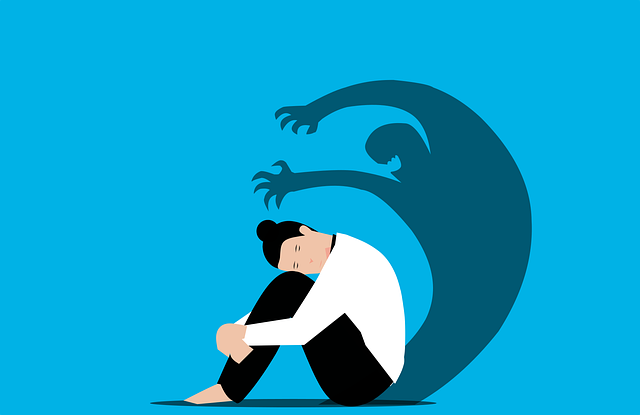Positive thinking, as demonstrated in Boulder OCD therapy, is a powerful tool for improving mental health and well-being. By identifying and replacing negative thought patterns with constructive ones, individuals can reduce stress, anxiety, and OCD symptoms. This approach enhances cognitive function, boosts self-esteem, and promotes emotional well-being. Boulder OCD therapy incorporates strategies like compassion cultivation and mindfulness meditation to cultivate positive thinking, fostering mental wellness awareness and reducing stigma. Overcoming challenges through effective strategies strengthens mental resilience, leading to a more fulfilling life journey.
“Unleash the power of positive thinking with our comprehensive guide, tailored for those seeking mental health improvement. This article delves into the transformative potential of optimistic mindset shifts, offering a practical approach for managing conditions like OCD in Boulder. We explore effective strategies to identify and challenge negative thought patterns, providing a step-by-step framework for implementing powerful positive thinking exercises. Learn how to overcome obstacles and cultivate resilience, ensuring a lasting positive mindset.”
- Understanding Positive Thinking and its Impact on Mental Health
- Identifying Negative Thought Patterns: A Step-by-Step Guide
- Implementing Effective Positive Thinking Exercises
- Overcoming Challenges and Maintaining a Positive Mindset
Understanding Positive Thinking and its Impact on Mental Health

Positive thinking is a powerful tool that can significantly impact mental health and overall well-being. It involves training your mind to focus on positive aspects, replacing negative thoughts with constructive ones. This simple yet effective practice has been shown to reduce stress, anxiety, and symptoms of various mental health disorders, including Obsessive Compulsive Disorder (OCD) in Boulder. By adopting positive thinking exercises, individuals can gain a sense of control over their minds, leading to improved emotional resilience.
This approach is not just about ignoring negative feelings but rather about reframing them. Research suggests that cultivating positive thoughts and emotions can enhance cognitive function, boost self-esteem, and promote emotional well-being promotion techniques. Mental wellness coaching programs often incorporate these strategies to help individuals manage anxiety relief and develop healthier thought patterns. Understanding the impact of positive thinking is a crucial step in implementing effective therapies for OCD and other mental health challenges.
Identifying Negative Thought Patterns: A Step-by-Step Guide

Identifying Negative Thought Patterns is a crucial step in any positive thinking exercise. It’s akin to spotting a familiar path in a complex forest—once recognized, it becomes easier to steer clear or find an alternative route. In Boulder OCD therapy, this process involves becoming attuned to recurring thoughts and the emotional responses that follow. Start by observing your self-talk throughout the day; jot down instances when you catch yourself engaging in negative thought patterns, such as all-or-nothing thinking (“I failed one test, so I’m worthless”) or catastrophizing (“This small mistake will lead to a disastrous outcome”).
Next, analyze these thoughts critically. Are they based on facts or exaggerated assumptions? What evidence supports or challenges them? Recognize that these patterns often serve as automatic responses to stress or anxiety, rather than reflections of reality. Engaging in this introspective practice not only helps break free from OCD’s grip but also paves the way for Mental Health Awareness and reduces the impact of the Mental Illness Stigma Reduction Efforts. Moreover, by becoming aware of these patterns, you can begin to challenge and replace them with healthier, more balanced perspectives, ultimately fostering effective Stress Reduction Methods.
Implementing Effective Positive Thinking Exercises

Implementing effective positive thinking exercises involves a structured approach tailored to individual needs. For those dealing with conditions like Boulder Obsessive Compulsive Disorder (OCD), integrating practices such as Compassion Cultivation and Mindfulness Meditation can be transformative. These techniques, often utilized in therapy sessions, teach individuals to observe thoughts without judgment, fostering a sense of detachment from negative thought patterns.
Regular practice strengthens the mind’s ability to cultivate positive thinking. Starting with simple mindfulness exercises, like focusing on breath or body sensations, individuals can gradually expand their practice. Incorporating positive affirmations and gratitude journaling further reinforces optimistic thinking. Over time, these practices become tools for navigating life’s challenges, promoting resilience and overall well-being.
Overcoming Challenges and Maintaining a Positive Mindset

Overcoming challenges is a pivotal aspect of cultivating a positive mindset. Life often presents us with obstacles and setbacks, but it’s how we choose to navigate them that defines our mental fortitude. For individuals managing conditions like Obsessive Compulsive Disorder (OCD), these challenges may seem more daunting. However, through effective strategies, such as those employed in Boulder OCD Therapy, one can learn to confront and overcome these hurdles. Techniques like conflict resolution training and burnout prevention methods play a significant role in strengthening mental resilience, allowing individuals to approach challenges with clarity and optimism rather than fear or avoidance.
Maintaining positivity requires consistent effort and the integration of self-care practices. Regularly practicing self-esteem improvement techniques empowers individuals to foster an inner sense of worthiness and resilience. By adopting these strategies, one can transform their response to life’s ups and downs, turning potential pitfalls into opportunities for growth and learning. This mindset shift not only enhances overall well-being but also facilitates a more enjoyable and fulfilling life journey.
Positive thinking exercises, as integral components of Boulder OCD therapy, offer a powerful tool for enhancing mental health. By understanding the impact of our thoughts and identifying negative patterns, we can cultivate a more optimistic mindset. Through practical steps and consistent practice, individuals can overcome challenges and maintain a positive outlook, leading to improved well-being and a more fulfilling life.














